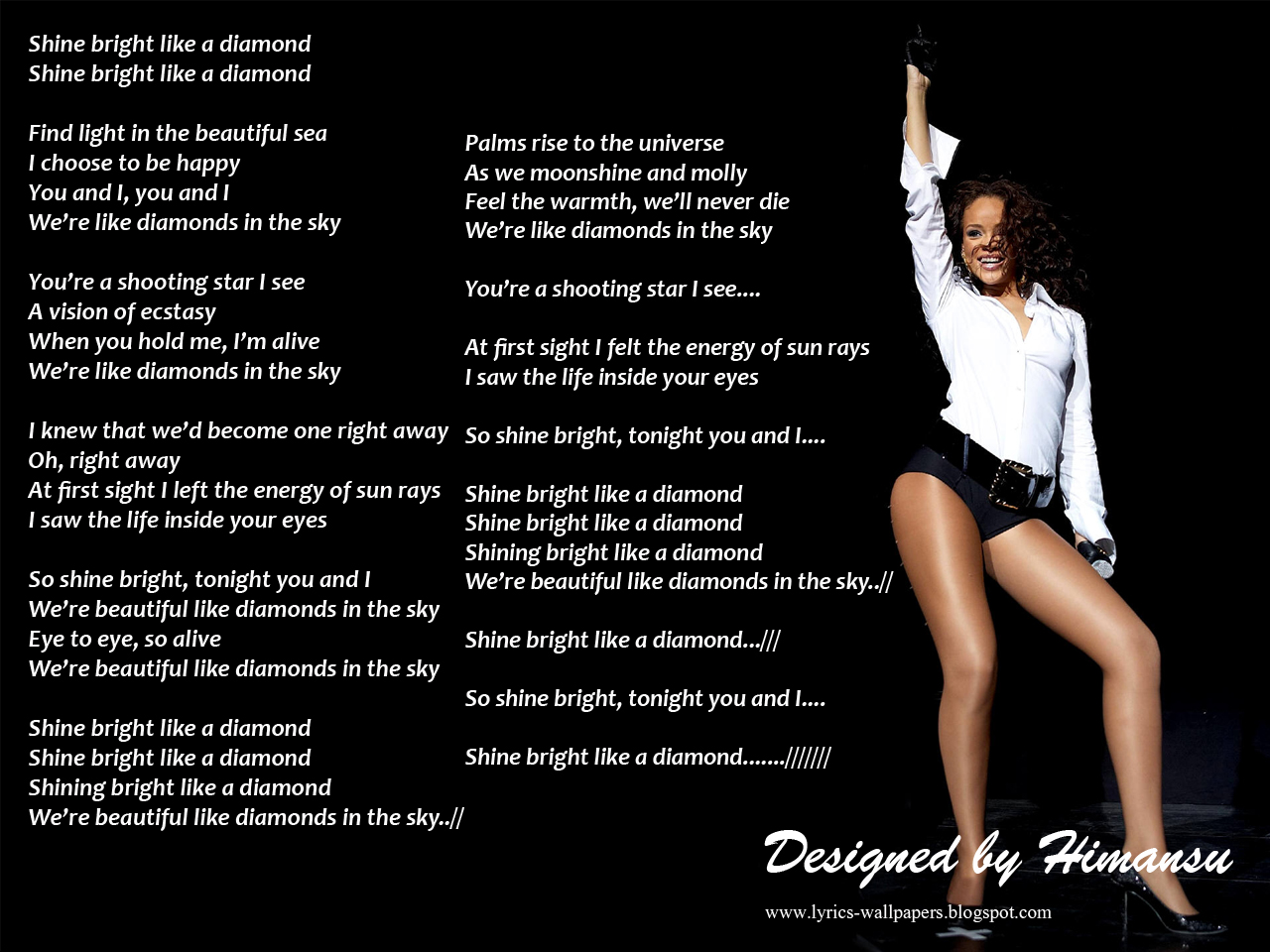

(Though the non-single “Fool in Love” off of Talk That Talk was a strong step in the right direction.)įor the first few weeks of its release, I felt underwhelmed by “Diamonds,” and I couldn’t exactly figure out why. The past year has seen a steady stream of sweat-drenched dance hits that were so much fun it felt objectively incorrect to say that anything was missing. The towering ballad should be a staple in any pop diva’s catalog, but meandering, laggy lowlights like 2010’s “California King Bed” made me think that Rihanna might be an exception to that rule. She’s long overdue for a meaningful ballad, and her most recent attempts haven’t held a candle to her more EDM-influenced material, but even as I write that I feel like a mom imploring her kids to eat their vegetables, which is weird. It’s historically been hard to warm up to a slow Rihanna song, and that’s equal parts due to the natural quality of her vocals, the persona she’s carved for herself as a pop star, and, unfortunately, what we know about Rihanna the person. 4 on Billboard’s Hot 100, CurrentlyĬurrent Radio Play Frequency No. In an ideal world, its blandness would bury the diamond-in-the-sky pop metaphor, but the truth is that a symbol like this-as with fireworks, hearts, and guns-is, uh, forever.Peak: No.

As far as pop ballads go, "Diamonds" stands as another achievement in catchiness for songwriters StarGate, Sia, and Benny Blanco: After one listen, the rat-tat-tat subchorus of "shine-BRIGHT-like-a-DI-MUND" will be on loop in your head even if you have no other recollection of what the song sounds like.

The headline moment is when she says she now "choose to be happy." Sure, fine, that's nice. Here, though, she's just equating a romance to something sparkly, eternal, and visible. single, described its "diamonds in the sky" as "yellow." Still, a lot of Rihanna's hits have still had some speck of writerly color in them, whether in the trying-very-hard bondage themes of "S&M" or in the new-cliche-minting chorus of "Umbrella." Even the laconic head rush of "We Found Love," her last No. Rihanna, though, is up to nothing so clever as Lennon or West on "Diamonds." Which, sure, isn't that much of a surprise: She and the songwriting machine behind her have never existed for lyrical innovation. Maybe you've heard it? "Twinkle twinkle, little star / How I wonder what you are / Up above the world so high / Like a diamond in the sky."
#Rihanna diamonds video song free#
If my few minutes of brain-wracking and Googling are right (feel free to correct me here!), the metaphor's big artistic debut came with "The Star," the 1806 nursery rhyme by sisters Ann and Jane Taylor, set to an old French melody. But Rihanna's recycling of the trope for the chorus ("Shine bright tonight / you and I / we're beautiful / like diamonds in the sky") of the first single off her as-of-yet-untitled seventh album is a prime example of pop's ability to coast on dead poetry into eternity. In the term's history, it's been subverted and stretched, giving rise to some excellent, enduring work. Sky-affixed diamonds have been showing up in songs for centuries now, evolving from what once was a metaphorical description for stars-which themselves are a hack's symbolic standby-into an evocative but empty phrase all its own. And last year, scientists found what they believe to be a planet made entirely of diamonds, 4,000 light years away from our own.īut the "diamonds in the sky" that Rihanna sings about on her brand-new single " Diamonds" belong to a more earthly category: the cliche. In 1981, for example, Smithsonian researchers wrecked their sawtooth blades when they tried to cut through an iron meteorite and hit a deposit of what was then the hardest material known to man.


 0 kommentar(er)
0 kommentar(er)
